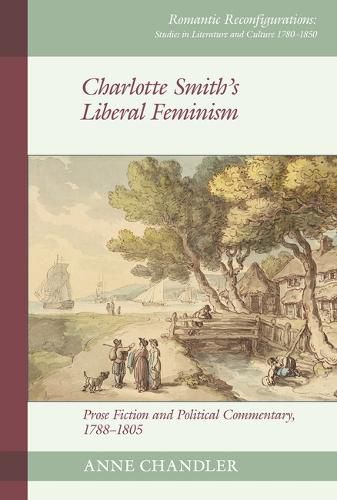Readings Newsletter
Become a Readings Member to make your shopping experience even easier.
Sign in or sign up for free!
You’re not far away from qualifying for FREE standard shipping within Australia
You’ve qualified for FREE standard shipping within Australia
The cart is loading…






This book re-assesses the feminist politics of Charlotte Smith (1749-1806) by prioritizing the editorial content of her fiction over the Romantic lyricism of her poetry. It describes Smith's application of 'patriot'-Whig discourse to the controversies of the Revolutionary era. Two constants emerge in Smith's novelistic canon: a reform agenda endorsing partisan opposition and a social contract; and a feminist agenda foregrounding intellectual freedom. These liberal stances provide a counterpoint to a research tradition that has viewed the ups and downs of Smith's 'radicalism' as need-driven responses to Revolutionary events and domestic hardships.
The policy discussions embedded in Smith's novels show that her theory of reform rested as much on ideals of British constitutionalism and enlightened fraternalism as on her own experiences of patriarchal oppression. Earnest young men seeking jobs, and helping women along the way, were central to her vision of cultural renovation. Her depictions of male sociability connect with her clear emulation of such forebears as Fielding and Smollett, whose comedic methods add nuance to her polemics. Smith the novelist was more interested in the entertainment value of 'low' humour than biographical readings have suggested. Overall, then, this book raises Smith's stature as a contributor both to the Burke-Wollstonecraft-Paine debates of the 1790s and to the liberal feminism of the early nineteenth century, by emphasizing the variety of her prose sources.
$9.00 standard shipping within Australia
FREE standard shipping within Australia for orders over $100.00
Express & International shipping calculated at checkout
This book re-assesses the feminist politics of Charlotte Smith (1749-1806) by prioritizing the editorial content of her fiction over the Romantic lyricism of her poetry. It describes Smith's application of 'patriot'-Whig discourse to the controversies of the Revolutionary era. Two constants emerge in Smith's novelistic canon: a reform agenda endorsing partisan opposition and a social contract; and a feminist agenda foregrounding intellectual freedom. These liberal stances provide a counterpoint to a research tradition that has viewed the ups and downs of Smith's 'radicalism' as need-driven responses to Revolutionary events and domestic hardships.
The policy discussions embedded in Smith's novels show that her theory of reform rested as much on ideals of British constitutionalism and enlightened fraternalism as on her own experiences of patriarchal oppression. Earnest young men seeking jobs, and helping women along the way, were central to her vision of cultural renovation. Her depictions of male sociability connect with her clear emulation of such forebears as Fielding and Smollett, whose comedic methods add nuance to her polemics. Smith the novelist was more interested in the entertainment value of 'low' humour than biographical readings have suggested. Overall, then, this book raises Smith's stature as a contributor both to the Burke-Wollstonecraft-Paine debates of the 1790s and to the liberal feminism of the early nineteenth century, by emphasizing the variety of her prose sources.